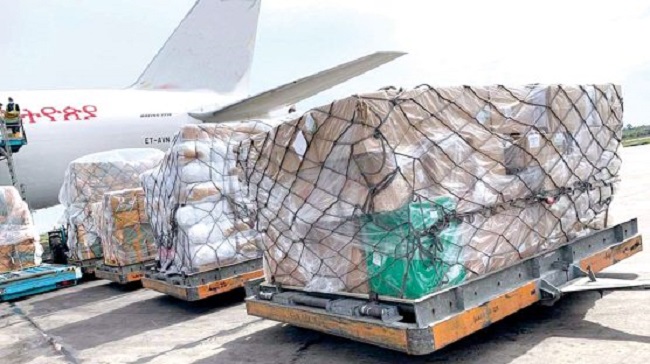Key players in the aviation sector at the 2023 CHINET cargo conference held in Lagos have described logistics as a major barrier to exporting cargo products.
Therefore, in order to improve export efficiency, the participants identified some important strategies that can help change the narrative to include the need to streamline transportation.
Recognising the fact that inefficient transportation can cause delays and increase costs, it has been agreed that through streamlining transportation processes, exporters can reduce transit times, eliminate bottlenecks and improve visibility into the movement of goods.
While optimise packaging has been identified as another strategy for improving export efficiency, proper packaging is critical to ensuring that cargo products arrive at their destination intact. Exporters should consider using packaging that is durable, lightweight and easy to handle.
Leverage technology has been identified as another factor that can help exporters to manage logistics more effectively while tools such as GPS tracking, real-time shipment visibility and automated customs clearance can all help to streamline logistics processes.
exporters have been urged to comply with various regulations and requirements in order to export their products as ensuring compliance with these regulations has been said to be critical to avoiding delays and penalties.
By addressing these issues, it has been agreed that exporters can unlock the logistics barrier and improve their ability to export cargo products efficiently and cost-effectively.
Exporters who are looking to improve their logistics efficiency should consider developing relationships with local logistics providers who have extensive knowledge of the local transportation infrastructure, customs regulations, and other logistical considerations that can impact the movement of goods.
“By partnering with these providers, exporters can gain access to their networks and expertise, which can help to streamline transportation processes and reduce costs.
Local logistics providers can also provide valuable support in areas such as warehousing, freight forwarding and Customs clearance. They may be able to offer specialised services such as temperature-controlled storage or oversized cargo handling that could be difficult for exporters to manage on their own.
“In addition to providing logistical support, local logistics providers can also help exporters to navigate cultural differences and language barriers that may arise when doing business in a foreign market. By building strong relationships with these providers, exporters can establish a reliable network of partners who can help them overcome logistical challenges and succeed in global markets.”
Relevant key players were also told to consider intermodal transportation options, which involve using multiple modes of transportation, such as truck, rail and ship, to move cargo products from one location to another. By utilising intermodal transportation options, exporters can take advantage of the strengths of each mode of transportation and create a more efficient and cost-effective supply chain.
According to presentations on the subject, using rail for long-distance transport can be more fuel-efficient than relying solely on trucks while similarly, shipping by sea may be a more cost-effective option for moving large volumes of goods over long distances. By combining these modes of transportation in an intermodal system, exporters can reduce transit times and costs while also improving visibility into the movement of goods.
In addition to reducing costs and increasing efficiency, it was also agreed that intermodal transportation can provide other benefits such as reducing carbon emissions and improving overall sustainability hence, exporters should consider working with logistics providers who specialise in intermodal transportation to explore these options and determine whether they are a good fit for their export operations






